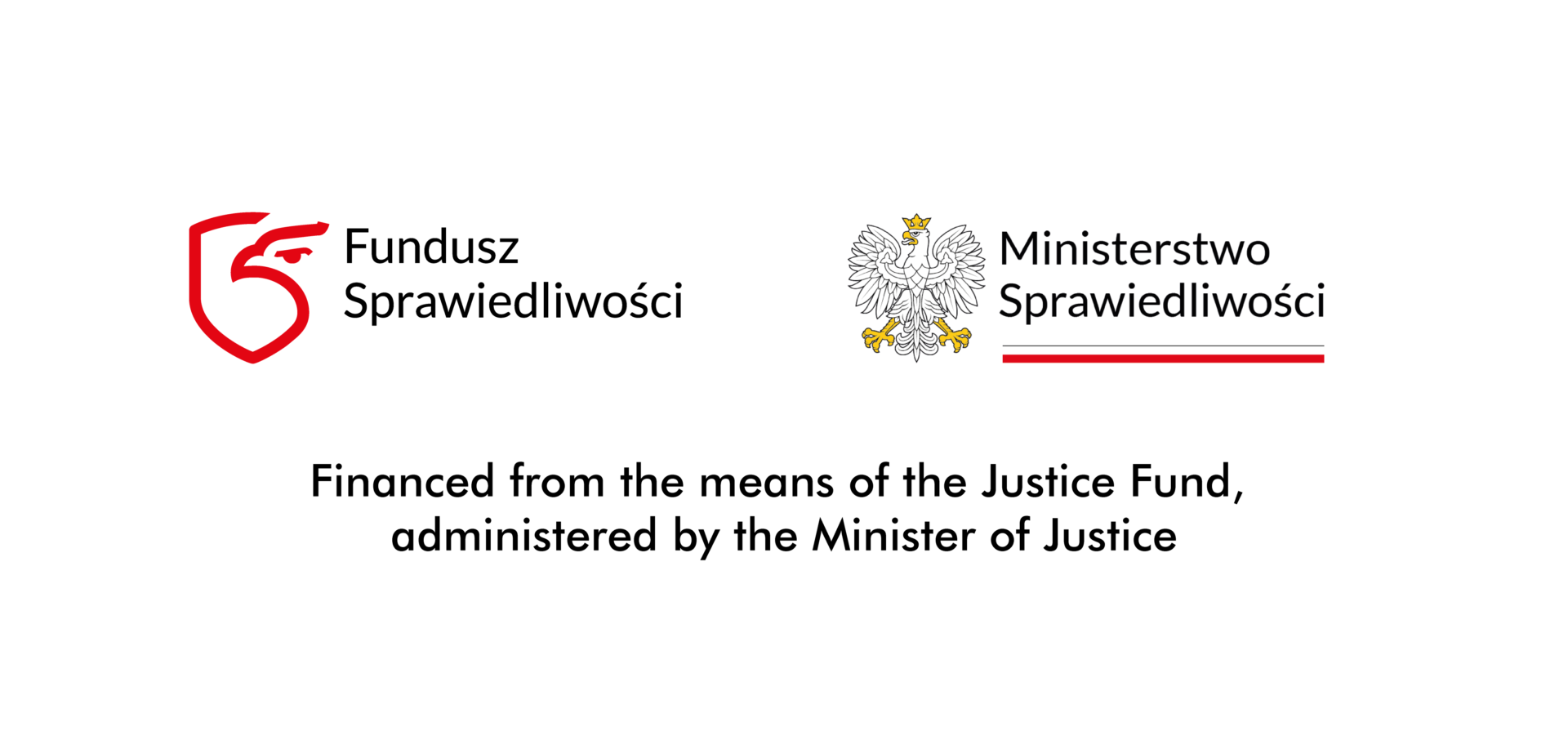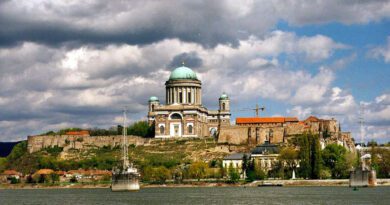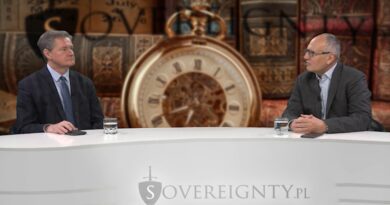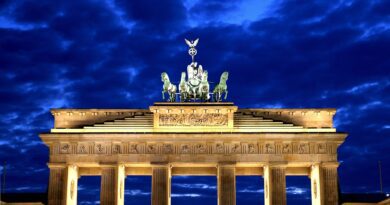Schuman’s Europe – The Christian project that preceded today’s rainbow EU (interview)
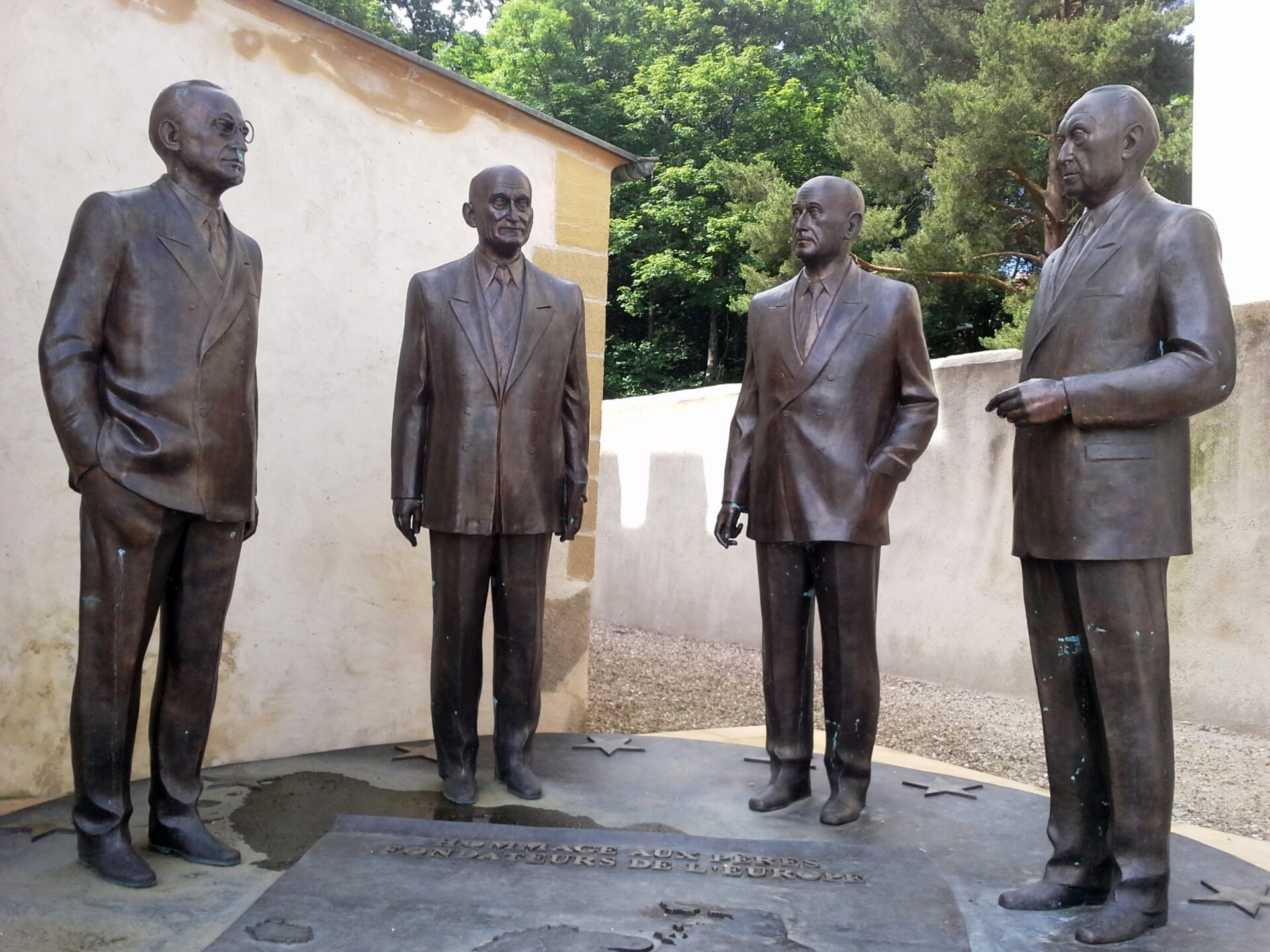
The founding fathers of the European communities that eventually became the European Union would be horrified and heartbroken to see what their coveted project, with which they wanted to secure the continent against further wars, has turned into. Since 1992, when the Maastricht Treaty was signed, accompanied by the manifesto of Altiero Spinelli, an Italian communist who wanted a Europe unified by force, the EU has taken a very sharp left turn and is now pursuing very different values. Publications promoting the current European Union do, of course, mention that Robert Schuman, the French politician who is widely considered as a founding father of today’s European Union, was a Catholic, but most often fail to show the impact of the Christian values he professed on how he conducted politics, and thus the effect they had on the shape of the first European Community.
This is according to Ryszard Krzyżkowski, chairman of the board of the Schuman Thought Institute (Instytut Myśli Schumana), a Polish think tank that promotes Christian values in European politics.
Krzyżkowski was interviewed by Piotr Włoczyk for Sovereignty.pl.
Would the founding fathers of the European communities that eventually became the European Union be satisfied with its current form?
I think they would be horrified and heartbroken to see what their coveted project, with which they wanted to secure the continent against further wars, has turned into. Their life’s work has been brought to a complete collapse by their successors. A European project is being built on the ruins of their work, which actually goes in the opposite direction. Since 1992, when the Maastricht Treaty was signed, accompanied by the manifesto of Altiero Spinelli, an Italian communist who wanted a Europe unified by force, the EU has taken a very sharp left turn and is now pursuing very different values. What are these values? Certainly not Christian ones.
Robert Schuman, Konrad Adenauer, and Alcide de Gasperi, the founding fathers of the first European Communities that have since evolved into today’s European Union, were all Christian Democrats, though of course the Christian Democrats of the 1940s and ‘50s had nothing in common with the majority of today’s European Christian democratic parties…
That is true. These three politicians from France, Germany, and Italy, who are touted by those currently ruling the European Union as the statesmen-builders of the foundations of European integration, were believers. Their Christianity, specifically Catholicism, was not just a label. These people tried to put Christian ideals into practice and organize the lives of their national communities so that they did not contradict the teachings of the Church. This was because they understood that our continent is founded on faith in Jesus Christ and that this great tradition is the strength of Europeans. All this is something unthinkable today in the Brussels decision-making centers. Nowadays, Christianity is generally considered to be a problem there, rather than as a path worth pursuing.
The Eurocrats have been taking up Robert Schuman’s banner for years, but it seems that they either understand little of his message or are very selective about it. In the reality of today’s EU, Schuman would normally be decried as some kind of right-wing extremist…
Yes, and this is due to the fact that today, healthy right-wing Christian thought is portrayed by European leftist elites as practically fascism. Examples of their attitude include the new definitions of marriage. Europeans are being forced to adopt revolutionary views, according to which anyone and everyone can enter into a union that will be recognized by the state as a marriage.
Schuman is usually portrayed in a manipulated way today. If I take my own example, I “discovered” the genuine Schuman seven years ago and was surprised to learn then that he was a Catholic who went to church and received Holy Communion every day. Why was I surprised? Because I previously perceived Robert Schuman through the prism of the Schuman Parade, which takes place every year in Warsaw, among other cities, and promotes the European Union as it is today – that is, as a leftist project. Linking Schuman to the current shape of the European Union is a typical ploy. He is used as a fig leaf to make the EU credible to the Catholic segment of European societies.
Publications promoting the current European Union do, of course, mention that Robert Schuman was a Catholic, but most often fail to show the impact of the Christian values he professed on how he conducted politics, and thus on the shape of the first European Community.
Meanwhile, for Robert Schuman faith was absolutely not something we should hide from the world. Schuman was outspoken about God and Christianity, which is a very uncomfortable fact for today’s leftist Euro-enthusiasts who so like to invoke Schuman’s legacy.
This French politician became famous for creating a document that has gone down in history as the Schuman Declaration: on May 9, 1950, Robert Schuman, then serving as France’s foreign minister, presented a plan to create the European Coal and Steel Community (which is why May 9 is celebrated as Europe Day.
After World War I, France, remembering the humiliation of the Franco-German War of 1870-71, sought revenge against Germany and presented peace terms that were extremely difficult for Berlin. After World War II, leading Western European politicians did not want a repeat of that situation. Schuman therefore proposed that the two most important industries at the time – mining and steelmaking – should be under common control in both countries. France and Germany were to control each other in these sectors to prevent another arms race.
“This proposal will lead to the realization of the first concrete foundation of a European federation indispensable to the preservation of peace. The coming together of the nations of Europe requires the elimination of the age-old opposition of France and Germany,” Schuman explained in 1950.
Schuman’s proposal was a surprising and novel one, leading to two countries that had been mortal enemies not so long before now being set to cooperate in key security sectors. Competition was being replaced by cooperation. Where did Schuman get his inspiration for such a design of the new Europe? No need to guess here, as this political leader repeatedly stressed that he was guided by Christian values not only in his private life, but also in his public mission. This is how a united Europe was designed on a Christian foundation. Unfortunately, in the last three decades the European Union has been rebuilt according to a completely different design, one which is rather anti-Christian…
How specifically did Schuman himself envision the place of Christianity in a united Europe?
In Catholic Social Teaching, we have basic principles that can also be applied to international relations, such as solidarity. Europe was to develop by securing the interests of the entire community. Such thinking was undoubtedly not present in the case of the Nord Stream pipelines, which gave one part of Europe the opportunity to make money (although of course this entailed dependence on Russia; such voices, however, were effectively silenced), while the eastern part of the EU experienced a deterioration in its energy security. The Nord Stream pipelines were a blatant violation of solidarity, which was a very important value for united Europe’s founding fathers. Fortunately, today almost everyone in Europe can see what a huge mistake these gas projects were, and one hopes that lessons will be learned for the future.
For sure, a left-leaning reader will ask at this point: And during the 2015 immigration crisis, was Poland in solidarity with the richer EU countries to which masses of migrants were being drawn?
The founding fathers of a united Europe certainly did not aim for Africa to come to Europe, as this is not a healthy migration model. Meanwhile, during the 2015 crisis, some Western European politicians, led by Angela Merkel, openly invited immigrants to their countries. Such a migration “policy” is unsustainable in the long run and is bound to end in huge problems. It is hard to blame the nations of Central Europe for not wanting to take part in such an unwise policy and for refusing to take responsibility for the mistakes of politicians from the west of the continent. At the time, the West required the “younger” part of the EU not so much to show solidarity as to take part in a crazy, dangerous project, and that is how we should look at it.
Another thing is that in Schuman’s time the migration problem did not exist in this form. However, we are familiar with his statements on Africa. He believed that Europe should take responsibility for the development of that continent. Of course, this was a period when European countries still had colonies in Africa. Schuman advocated promoting Africa’s development, both economically and educationally.
Weren’t the founding fathers dreaming of the common European state that the EU elites are striving for today?
Absolutely not. Their idea was to create a community of free nations that would live according to their own traditions and cooperate where such activities would benefit all parties. None of the founding fathers wanted to create a European equivalent of the United States of America. They were all sons of their nations, who did not want to forcefully flatten out the completely natural differences between the peoples of Europe. Recent statements by German Chancellor Olaf Scholz, in which he has said that he wants to take away the veto power of Europe’s nation-states in foreign and security policy, are a very blatant denial of the ideals that underpinned the construction of the European communities.
Since 2004, the Catholic Church has been conducting Robert Schuman’s beatification process. In 2021, Pope Francis recognized the heroic virtues of this founding father of a united Europe, bringing his beatification closer. Why did this French politician came to the Church’s attention?
Throughout his life, including most importantly in politics, Schuman was guided by his Christian faith. He always held on to his faith, even if it meant trouble for him. After his mother’s death, young Robert wanted to join a religious order, but one of his relatives convinced him that he would better serve God by remaining a layperson. And that’s exactly what happened. This was his conscious decision: to serve God as a lawyer. Schuman took cases that were considered difficult and from which he did not earn much, because he cared first and foremost about righting human wrongs.
When he later began the political chapter of his life in 1919 by entering the French parliament, he did not leave his Christian values at the doorstep. And yet this is so often expected of representatives of the various professions – not only politicians, but also doctors, among others. Unfortunately, many Catholics, bowing to the pressure, try to separate their faith from their public activities. Schuman never succumbed to such temptations and did not go for any rotten compromises.
Nor did he compromise with the German invaders, which he paid for with his freedom…
Yes, during the war he was an opponent of collaboration with Nazi Germany and was placed under house arrest, from where he later escaped.
This great figure shows us that a claim such as “it is impossible to be a devout Catholic in politics” is simply false. It is in fact possible, and to realize this you just have to read through the man’s resume. We are now praying for a miracle to get confirmation that Robert Schuman occupies the right place in heaven, so that his beatification can occur.
